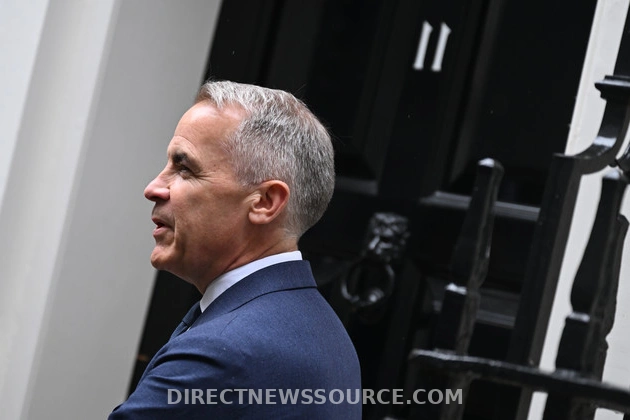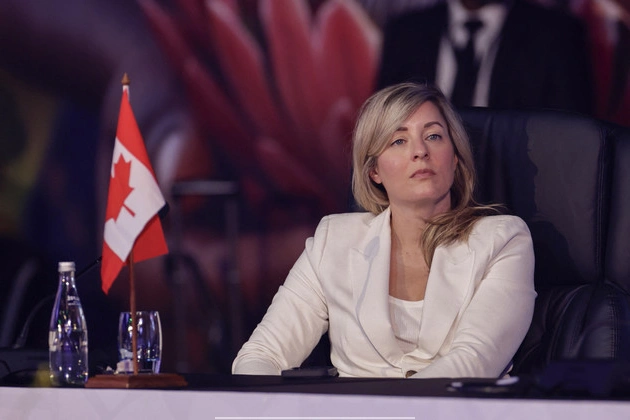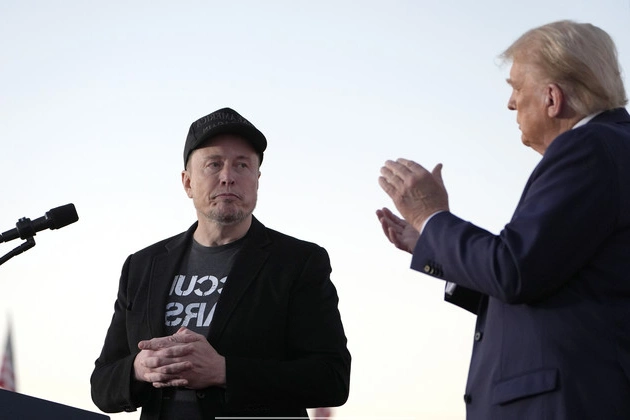
The Fight to Replace Justin Trudeau: Mark Carney's Political Ambition
OTTAWA — Mark Carney has for years played coy about his political ambition. The former head of two G7 central banks, green transition guru, and Liberal Party economic adviser is finally ending the speculation.
Political Ambition Unveiled
When Prime Minister Justin Trudeau announced his resignation on a chilly January day, he triggered an abbreviated leadership race that offers Carney a rare fast-track to the prime minister’s office for someone who’s never run for office.
Carney’s supporters celebrate the fact he’s not a career politician. Detractors point out he has no experience on his feet in the House of Commons.
The Race Heats Up
Should he end up Liberal leader, Carney will be up against ascendant Conservative Leader Pierre Poilievre, a populist firebrand surfing a wave of anti-Trudeau sentiment — someone who has spent two years perfecting his sales pitch at ‘ax the tax’ rallies in town halls across the country.
As Carney formally enters the race Thursday in his prairie hometown of Edmonton, Alberta, the former bureaucrat who swims with the Davos set already has the backing of a significant chunk of the Liberal Party caucus.
Rivalry and Connections
The burgeoning Carney/Freeland rivalry is rife with parallels.
Both are regulars at World Economic Forum confabs. Each has a deep rolodex that connects to global finance influencers. They’ve known each other for years. Carney is godfather to Freeland’s son.
Policy Stances and Criticisms
Carney soft-launched his pitch to Liberals on ‘The Daily Show’ earlier this week, unveiling a gentle critique of the Liberal Party’s current priorities and positioning himself as a change candidate focused on economic growth and tariff threats from the incoming president.
Conservatives are already portraying Carney as Trudeau 2.0 or worse — a carbon-taxing global elite riddled with conflicts of interest.
Background and Experience
Carney was born in Canada’s Northwest Territories, but grew up in Edmonton, where the hockey team is still the Oilers — the same part of the country where Freeland spent her childhood.
He graduated from both Harvard and Oxford (so did Freeland) before landing at Goldman Sachs, where he racked up hours at the firm’s offices in Boston, London, New York, Tokyo, and Toronto.
Global Recognition and Challenges
Carney eventually landed in Canada’s federal bureaucracy, rising through the ranks at the Bank of Canada and the Department of Finance. In 2008, former Conservative Prime Minister Stephen Harper tapped him to lead the central bank.
Carney came to prominence during the global financial crisis. Canadians don’t typically pay much attention to their central bankers, but Carney became known as a ‘rock star’ as he guided Canada through the uncertainty.
Climate Focus and Industry Involvement
Carney’s climate fixation is a double-edged sword. As he plays the global circuit, voters back home are thinking less about carbon emissions — and more about paying the bills.
Carney is the U.N. Special Envoy for Climate Action and Finance, and chair and head of transition investing at Brookfield Asset Management.
Challenges Ahead
As Carney steps into the race to replace Trudeau, the field of contenders has thinned considerably.
Their showdown won’t last long. Liberals pick a new leader on March 9.
Jordan Wolman contributed to this report from Washington.















